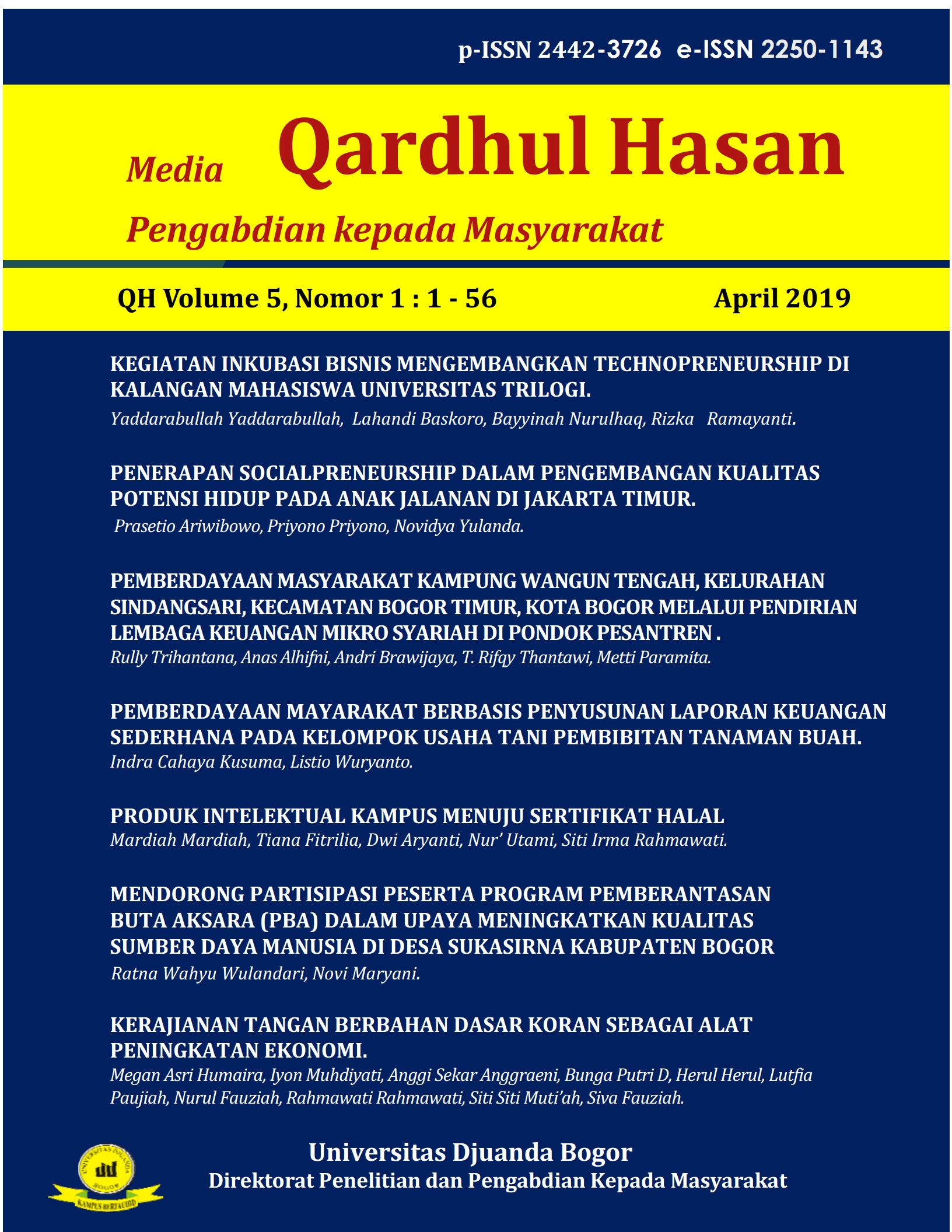REVITALISASI DAN MODERENISASI POTENSI DESA BERBASIS INTEGRATED TOURISM DI ERA PANDEMI COVID-19
DOI:
https://doi.org/10.30997/qh.v8i3.5782Keywords:
Revitalization; Modernization; Village Potential; Integrated Tourism; Covid-19 Pandemic.Abstract
Rural development is the basic strength of a country. Equitable development is a priority program from the government that has been adapted to laws and regulations as an embodiment of the spirit to protect constitutional rights, for the welfare of all Indonesian people. In the research of the Village Empowerment Program (P3D) in Tumpang Village in 2021, Tumpang Village has the potential for Livestock, Processed Food Products, and Tourism. The village development program aims to create integration towards a modernization system in improving the quality of human resources in Tumpang Village comprehensively. The form of participation and active role of the community to build the village into an independent tourist village. The synergy between the motivation of the target villages and the program implementation objectives by the P3D team at Merdeka University Malang is then realized in a program scheme that is expected to be carried out in a sustainable manner. The scheme for village tourism activities that support the concept of integrated tourism is educational tourism, exploration, cultural tourism, and ecotourism.
References
H. Hastuti, (2011), Penelitian Hukum Peran Masyarakat dalam Penataan Ruang, Badan Pembinaan Hukum Nasional Kementerian Hukum dan Hak Asasi Manusia R.I., hlm. 38.
Bhattacharyya, (1990), Dalam Taliziduhu Ndraha, Masyarakat: Mempersiapkan orang untuk tinggal landas, Jakarta.
W. Kessa, (2015), Perencanaan Pembangunan Desa, Disunting:S. Huda, S. Eko, Kementerian Desa, Pembangunan Daerah Tertinggal, dan Transmigrasi Republik Indonesia, Jakarta, vol. 6, hal.12.
A. A. Priskila, Y. I. P. Sari and G. P. Mulyono, (2020), Digitalisasi Ekonomi Desa dan Bumdes untuk Pemulihan Ekonomi dalam Studi Pandemi di Desa Talun, Kabupaten Blitar, Prosiding Munas Pengabdian Masyarakat, Indonesia, 07-20 Desember.
Downloads
Published
How to Cite
Issue
Section
License
Copyright (c) 2022 Galih Mulyono, Leonardo Gianov Woda Niki, Bagas Martinus Rianu, Precilia Angelitta Susanto, Mutiara Devika

This work is licensed under a Creative Commons Attribution-ShareAlike 4.0 International License.
- Copyright on articles is retained by the respective author(s), without restrictions. A non-exclusive license is granted to Qardhul Hasan: Media Pengabdian kepada Masyarakat to publish the article and identify itself as its original publisher, along with the commercial right to include the article in a hardcopy issue for sale to libraries and individuals.
- Articles published in Qardhul Hasan: Media Pengabdian kepada Masyarakat are licensed under a Creative Commons Attribution-ShareAlike 4.0 International license. You are free to copy, transform, or redistribute articles for any lawful purpose in any medium, provided you give appropriate credit to the original author(s) and the journal, link to the license, indicate if changes were made, and redistribute any derivative work under the same license.
- By publishing in Qardhul Hasan: Media Pengabdian kepada Masyarakat, authors grant any third party the right to use their article to the extent provided by the Creative Commons Attribution-ShareAlike 4.0 International license.


